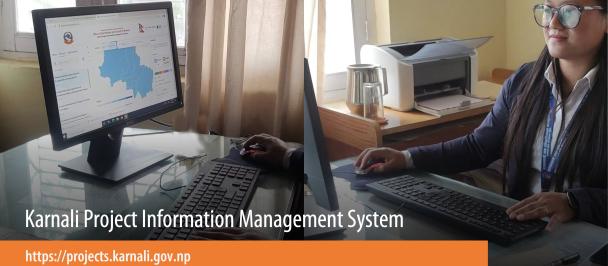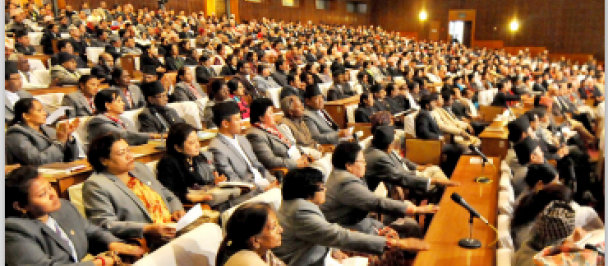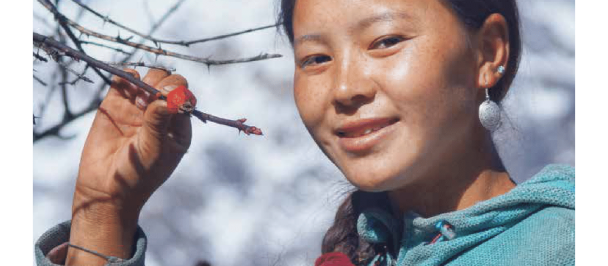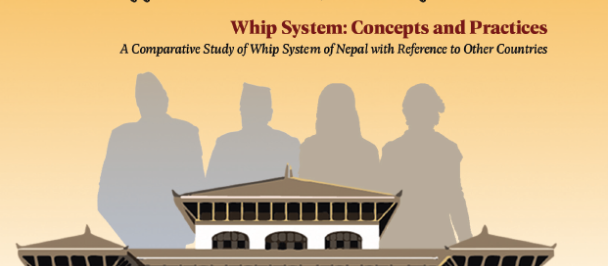Women parliamentarians in Province 7 learn to gauge and improve their leadership and communication skills as part of a training organized in Nepalgunj on June 3
“Although I was always fairly ambitious as far as my political career was concerned, I didn’t ever imagine I’d be elected Deputy Speaker someday,” Nirmala Badal Joshi was saying to a camera. This was a simulation of a TV interview that Joshi--the Deputy Speaker of Province 7--was participating in, part of a larger training programme to inculcate in women parliamentarians some essential leadership skills organized in Nepalgunj on June 3 with UNDP support.
Joshi was among a dozen or so MPs taking the two-minute test interview, designed as a close approximation of a real-life TV appearance and coordinated by senior journalist Dev Prakash Tripathi in order to impart to participants the importance of precision in speaking and communicating with authority. Besides the interview exercise, the training also included sharing sessions presented by former women parliamentarians on the lessons they had learned in different areas, including lobbying and advocacy, media engagement, negotiation, and identifying and raising issues in discussions, among others.
Former minister and sitting parliamentarian at the Federal House of Representatives, Rekha Sharma, for instance, offered up several anecdotes related to gender-biased attitudes and behavior she had encountered herself on the part of bureaucrats and society at large. “If we don’t stand up against these things, we’ll never succeed in raising women up from subordinate positions in society--we need to prove ourselves through hard work and real outcomes,” she said.
“This is a great opportunity for women MPs to learn all these different tips and tricks in advance,” said former Constituent Assembly member Khim Lal Devkota, who was one of the four trainers at the programme. “In our time, we didn’t get this kind of exposure, and spent a lot of time learning by doing.”
The training also encompassed other areas related to soft skills, leadership traits, roles and responsibilities as women MPs, as well as time to reflect on their own leadership abilities and approaches. “This workshop was uniquely geared at helping women parliamentarians carry out a self-appraisal of their potential and performance, and identify areas in which they need to improve as leaders,” said Bimal Phuyal, another of the trainers.
A final session of the programme was focused on communication and media capacities--including best ways to handle journalists, using social media and basically engaging media more effectively. It was the practical component of this session that the TV interview simulation had formed part of. Chun Kumari Chaudhary, one of the participants, was all praise for the workshop’s design, saying, “It was great to get to practice my interview-giving skills and to receive such prompt feedback on the same. It’s helped me to see how I can better myself.”
Along the same lines, MP Purna Joshi, said she was very inspired by the experiences and stories that former women MPs and ministers had presented. “I’m taking away a more reinforced spirit of ‘women can’ from this programme,” she said.
UNDP’s Kalpana Sarkar, thanking the women MPs for their enthusiastic participation, shed light on UNDP’s commitment to strengthen the capacity of parliaments by supporting parliamentarians in carrying out their constitutional duties more effectively in the changed federal context and in implementing the SDGs.

 Locations
Locations


